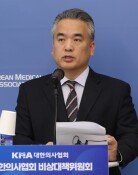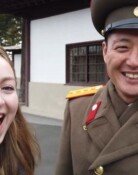25th anniversary of Seoul-Beijing ties marred by THAAD row
25th anniversary of Seoul-Beijing ties marred by THAAD row
Posted August. 25, 2017 08:42,
Updated August. 25, 2017 08:54
South Korean President Moon Jae-in and his Chinese counterpart Xi Jinping on Thursday exchanged congratulatory messages marking the 25th anniversary of bilateral relations. However, the messages showed the realities of bilateral ties soured by conflicts over Seoul’s deployment of the U.S. Terminal High Altitude Area Defense (THAAD) anti-missile system. While Moon expressed hope to upgrade bilateral ties to a practically strategic and cooperative partnership, while Xi offered to addresses difference between the two neighbors properly. Events marking the anniversary were held in Seoul and Beijing, respectively, but they were nothing but formal ceremonies. At a congratulatory ceremony hosted by the South Korean embassy in Beijing, a Chinese person who had nothing to do with South Korea affairs was present as a main guest.
Until 2015, leaders of the two countries visited each other before or after the anniversary. Five years ago, the two countries co-hosted an event celebrating the 20th anniversary of their diplomatic ties. At that time, Xi, then vice president who was expected to rise to Chinese presidency, and other senior Chinese officials attended the event. However, their relationship was soured after Seoul’s decision to deploy the THAAD system last year and has been pushed to the verge of severed ties due to Beijing’s retaliatory measures and refusal to have diplomatic contacts with Seoul.
In a telephone conversation with Moon right after the latter was elected South Korean president on May 9, Xi offered to the mindset the two countries had when forging diplomatic ties, stressing the need to pursue common interest and address differences. However, China still hangs on to retaliation. Seoul also seems to have given up hopes on Beijing. Successive South Korean presidents tended to have Beijing as their second destination following a visit to Washington after being sworn in. However, Moon chose Russia as his next destination. South Korean Foreign Minister Kang Kyung-wha departed for Moscow Thursday instead of attending a congratulatory ceremony held at the Chinese embassy in Seoul.
The fundamental cause of the THAAD issue, which China calls an obstacle to the bilateral ties, lies in North Korea’s nuclear and missile threats. Seoul had no choice but to have the missile defense system deployed in order to respond to Pyongyang’s possible nuclear missile attack. Of course, the previous Park Geun-hye administration’s handling of the issue was problematic. But China is also significantly responsible for having done nothing to stop Pyongyang’s nuclear development. At a summit with Moon in Berlin last month, Xi embraced North Korea, saying China’s “blood relationship” with the North would not change fundamentally. Such an attitude allowed the North to accelerate its nuclear development, pushing China to a situation in which it risks worsening ties with other neighbors.
As South Korea needs the THAAD to ensure its own survival against the North’s nuclear threats, it is impossible to withdraw the missile defense system as long as the threats continue. Beijing must be well aware that no matter how much it retaliates or coerces South Korea, Seoul cannot make any concession about its security issue, just as China would not back up on its national security because of U.S. pressures. It would be in neither side’s interest to continue unnecessary conflicts over an issue that has no immediate solution. Although China claims that the THAAD deployment would break the U.S.-China strategic balance, it is questionable how much China’s national security would be encroached by just one THAAD battery. It is time for China to act like a great power and stop making outrageous demands in order to address the THAAD issue.







